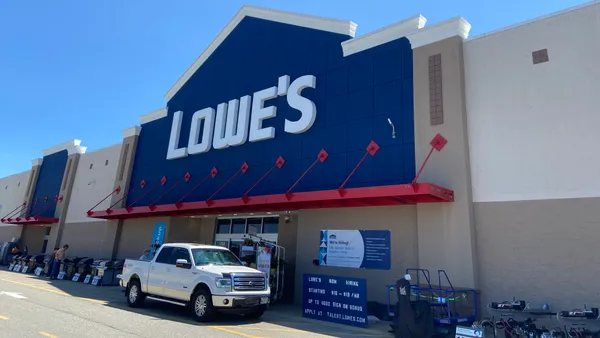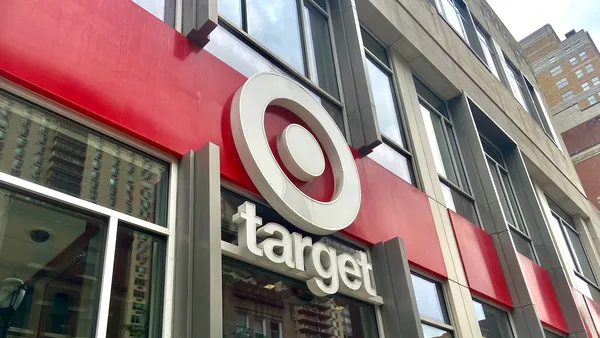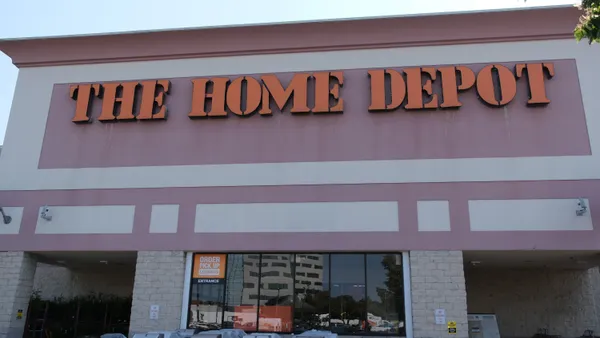Dive Brief:
-
Dr. Martens CEO Steve Murray will be leaving as Permira, the private equity owner of the iconic U.K. shoe brand, looks to speed up growth, according to an internal memo obtained by Bloomberg News. A Dr. Martens spokesperson told Retail Dive that his departure was amicable and that he and the retailer's board of directors mutually agreed that the "time is right for a change in leadership."
-
Paul Mason, chairman of the company for the last two years, will take over as interim CEO during a search for a new chief executive, according to the report. Mason has expertise selling a company, Bloomberg reported — often the goal for private equity taking over a business in need of a turnaround.
-
The fund in 2014 acquired R Griggs Group Limited, the parent company and licensee in perpetuity of the Dr. Martens brand, for £300 million (close to $500 million), and shortly thereafter tapped Murray, who had been an executive at Vans, Vans owner VF Corp., and more recently at Urban Outfitters and Deckers. Retail Dive's request to Permira for more information wasn't immediately returned.
Dive Insight:
It’s not that Murray wasn’t getting things done at Dr. Marten where the boots, first introduced in 1960, were a punk era staple among musicians and fans. While not the potent symbol it once was, the brand has nevertheless held on among musicians and cultural rebels since, and is an enthusiastic sponsor and participant at events like the global Afropunk fests and tie-ups with the likes of Seattle-based feminist surf-punk quartet Tacocat. Under Permira, Murray led a company that had been family-owned since 1901, and widened its appeal by adding more styles, launching brand stores and boosting e-commerce, Bloomberg reports.
Private equity usually has a time table for its investments — with a goal of extracting some profit within five years or so through going public or a private sale. Some PE firms withdraw funds along the way, too, in the form of dividends to shareholders or fees from the companies they hold.
Sometimes that can hamper turnaround efforts by weakening necessary investment in talent and operations. In such cases, the financial firms bring with them debt burdens that can make it difficult for retailers in need of a transformation to properly invest in a turnaround, whether it entails beefing up traditional efforts like merchandising or developing new systems to meet modern supply chain demands wrought by e-commerce. Instead, private equity turns to the debt spigot for dividends. While retail companies with low debt can ride out bad times, highly leveraged ones can swiftly find themselves in danger of faltering badly. Yet their owners, time after time, don’t pay the price.
Take The Limited, a once-storied apparel retailer and style influencer with a nimble supply chain well ahead of its time. In January, about the time the women's apparel retailer was telling customers that it was shuttering all stores, the owner, private equity firm Sun Capital, was telling investors it had nearly doubled its Limited Stores investment, according to an email to shareholders obtained by Reuters. Due to prior distributions and dividends, Sun Capital made back its original $50 million 1.8 times over, and would write down the remaining equity value of Limited Stores to zero.
"It’s not a given that a company would under-perform under private equity ownership," Moody’s Vice President and Senior Analyst Raya Sokolyanska told Retail Dive earlier this year. "It’s just that the extra debt puts extra constraints on their flexibility. I would say that, depending on the company and how much turnaround work need to be done, a buyout can be done with a modest amount of leverage. It depends on the brand and the strength of the business. But broadly, the ability to bear a high level of debt is probably lower because of the stress in the sector."
Howard Davidowitz, chairman of New York City-based retail consulting and investment banking firm Davidowitz & Associates puts it more starkly. "Now private equity is there with billions in debt, and 'Goodbye,'" he said. "The Limited, American Apparel — if you go down the list, the list is endless."













